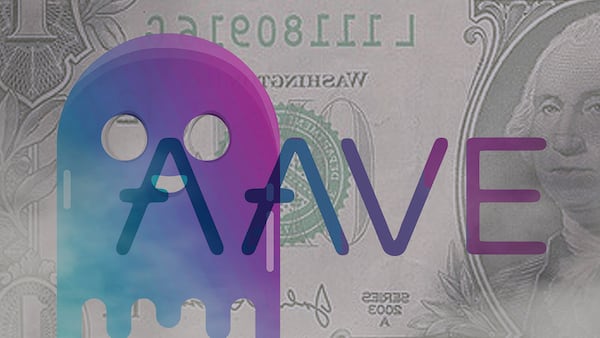- Newly passed regulations finally clarify marketplace for OKX exchange and other crypto firms.
- Hong Kong regulators require crypto players to submit to more checks than banks or brokerages.
- OKX's Lai said more crypto products could be permitted in the future.
When OKX was founded in 2017, it had big plans to become a global crypto exchange. Today it’s largely delivered on that promise.
OKX boasts more than 50 million users and recorded $29 billion in trading volume last month, according to CCData.
Despite operating in more than 100 countries, there’s a catch. Until recently, it didn’t serve retail customers in the place where it has a key base — Hong Kong.
Pain point
The city’s regulatory ambiguity has long been a pain point. Yet while OKX built up a team in Hong Kong over the years, it banned onboarding customers there.
Now that may be changing.
“As more regulatory clarity emerged through guidance from regulators and policy consultations, we were able to formulate a licensing strategy and business plan for the Hong Kong market in the past year,” Lennix Lai, Global Chief Commercial Officer, told DL News in an interview.
NOW READ: Bitcoin casinos and burger joints selling Tether — how Hong Kong fell back in love with crypto
On June 1, Hong Kong financial officials cleared the way for regulated crypto companies to serve retail investors.
The rules set minimum requirements around bringing aboard customers and conducting counter-terrorist and anti money-laundering checks, as well as directives on governance, disclosure, and token admission criteria.
This marks the first time crypto exchanges serving retail clients in Hong Kong will be regulated. Prior rules only applied to professional investors.
No exception
This month, several firms have already received approval, while others are preparing to apply ahead of a deadline in February next year.
Throughout the crypto era, exchanges and other outfits have raced ahead of regulators as they offered a raft of products and services to investors and users. But now, with authorities in the US, the European Union, and other locales finally catching up, crypto founders want clarity and structure when it comes to regulation.
Hong Kong is no exception.
NOW READ: Singapore imposes rules to make stablecoins ‘credible digital medium of exchange’
Yet even as officials act to protect investors from fraud and other bad behaviour, they must also take care not to suffocate the crypto industry with regulatory overkill.
To get a handle on how a major Hong Kong crypto player is coping with this new reality, DL News visited OKX in the Sino Plaza building — a 27-story skyscraper overlooking Causeway Bay.
Assessors and expenses
OKX’s bustling office is all business. It lacks the web3 posters and life-size cutouts of NFT characters seen at companies like Animoca Brands.
Apart from the giant OKX logo behind the welcome desk, there’s little to distinguish it as a crypto company. There’s none of the Ethereum or Bitcoin pillows that Hong Kong’s crypto aficionados like to order off of Taobao.
NOW READ: Aave stablecoin GHO struggles to hold dollar peg. ‘The focus on peg should come later,’ founder says
Nevertheless, its fridge houses half a dozen flavours of local soy drink brand Vitasoy and there’s a decent supply of various instant noodles on the shelves.
I sat down with Lai In one of the suite’s conference rooms to discuss the application process and how OKX is hoping to be among the first batch of new exchanges granted a licence.

The lack of regulatory clarity meant that OKX and other exchanges have been cautious about operating in Hong Kong. Getting regulated under the old regime meant a company could only cater to professional investors. Not being regulated meant serving retail customers in a grey area where it wasn’t clear exactly what the rules were.
Real challenge
Yet since it launched in the city, OKX has amassed over 10,000 customers. The real challenge, according to Lai, lies in the application process for an operating licence in Hong Kong. It involves having to hire external assessors to review each of seven different requirements and write a report to submit to the Securities and Futures Commission.
Moreover, crypto firms must satisfy more requirements than their counterparts in traditional finance such as brokerages and banks.
Pricey process
It can be difficult to find qualified people with the crypto expertise to conduct these audits.
“Assessors are mostly from the big four, as well as specialised IT compliance consulting firms.” Lai said. “They don’t have a lot of experience in crypto.”
It’s not an inexpensive process either. A report from CoinDesk estimated that obtaining a new licence could cost anywhere between $12 million and $20 million.
NOW READ: Wall Street’s Bitcoin land grab may push crypto firms ‘by the wayside,’ say finance veterans
That includes operating costs, as well as third party support such as consultants, lawyers and insurance. Exchanges must also meet minimum capital requirements.
A spokesperson for OKX wasn’t able to share an estimate for its own costs but the process will require “a significant amount of investment.”
“For OKX, in order to prepare for the licence application, we’ve invested heavily in the areas of talent acquisition, innovation, technology, compliance and system security in particular,” they added.
Financial Integration
Looking ahead, Lai is optimistic about the potential offerings within the licensing framework and believes that in the future products offered to retail investors could become broader.
“We could perhaps offer margin trading and access to DeFi in a regulated manner,” he said.
NOW READ: Hong Kong grants first two crypto exchange licences to HashKey Exchange and OSL
The SFC suggested in May these sorts of products are on their radar too. It said it is aware of the importance of virtual asset derivatives to institutional investors and will be conducting a separate review of comments made on the topic during its consultation period.
Lai also sees the possibility for greater integration between the crypto and financial sectors in Hong Kong if regulators — and the public — can be convinced of its merit.
“It actually has a better underlying technology in terms of anti-detection and prevention of money laundering, and better upholding investors’ information rights through proof of reserves,” he said. “It is not only safe but also more transparent and efficient.”
Callan Quinn, DL News’ Hong Kong-based Asia correspondent, covers the crypto industry in the region. Have a tip? Contact the author at callan@dlnews.com.



